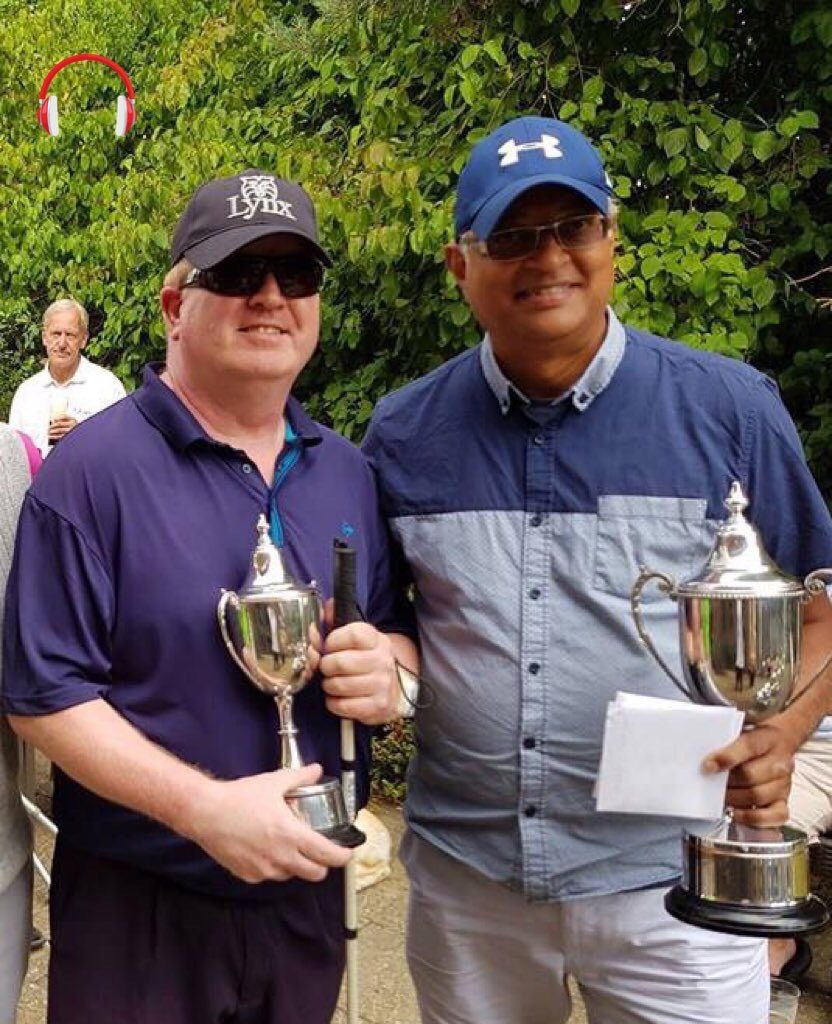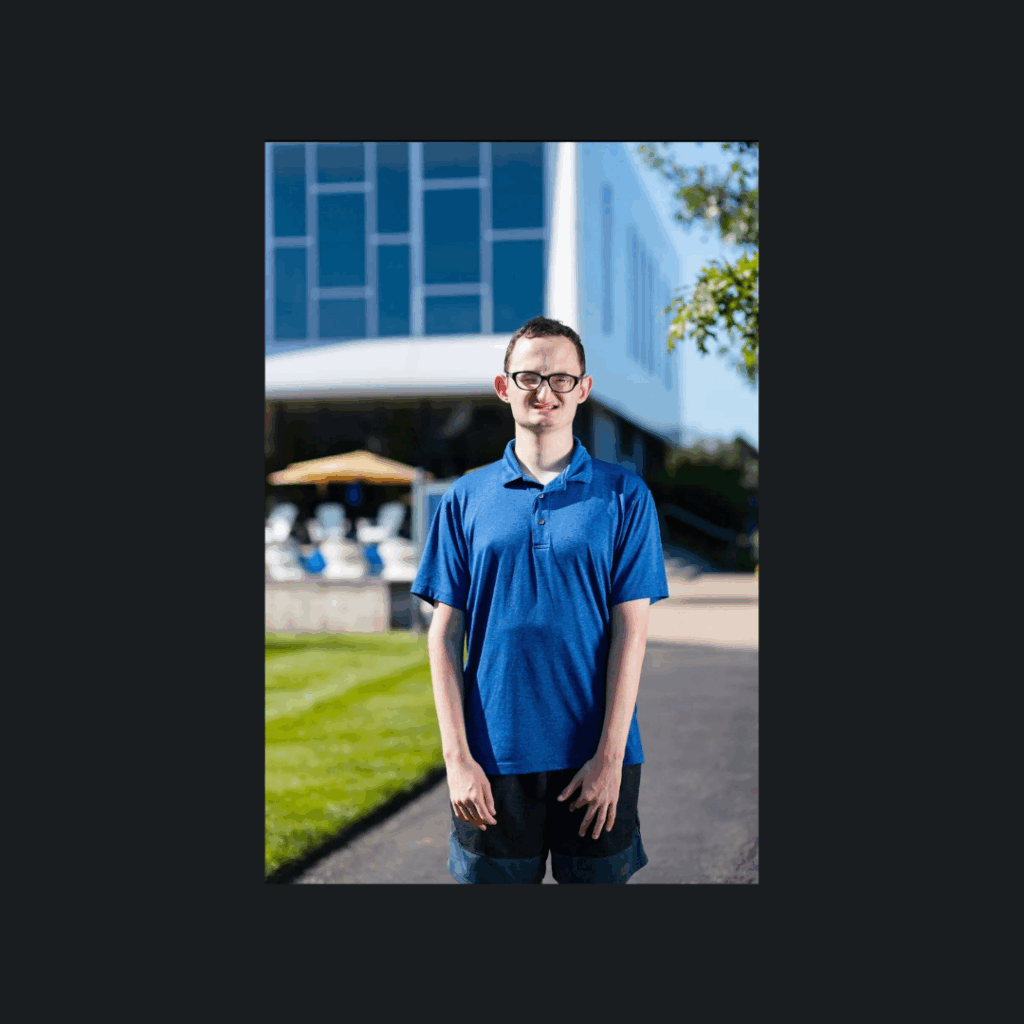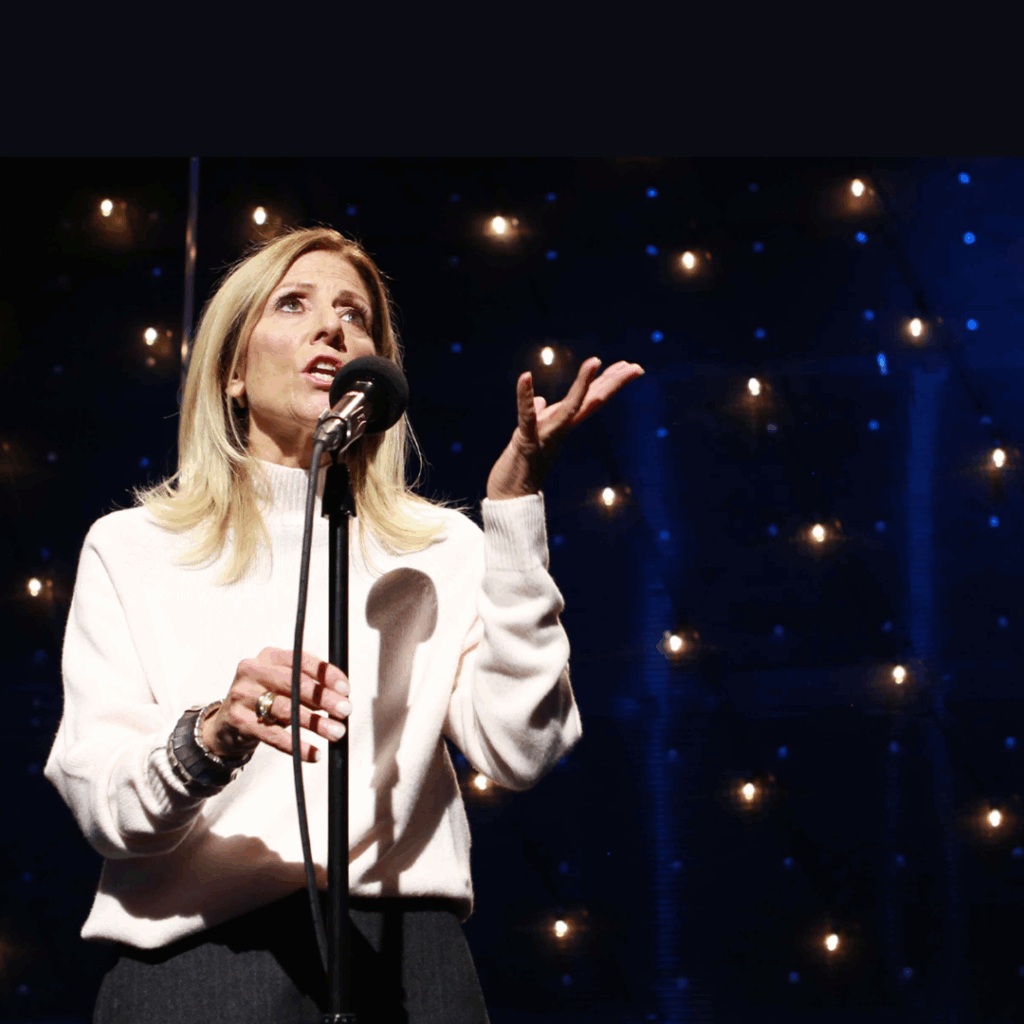I always wanted to be a disc jockey. I started doing gigs at school in the late 1970s as I loved music and it really helped me overcome my shyness.
I continued the mobile DJ role until I was 30 when I was diagnosed with a degenerative eye disorder that would eventually leave me blind. So I gave up the music and just stuck with my day job of working with acrylics.
Then I thought “Why can’t I be a DJ again?” With some great training at RNIB Connect Radio in north London I managed it and it was during that time that I decided to take up golf.
When I first took it up, my sight was a lot better and I went to The Hertfordshire golf club for lessons with the professional Dave Smith who, like me, is a left hander. I spent most of the time missing the ball but I stuck with it and managed to play a few rounds on a nine-hole course in Ware.
I knew my sight was going to get bad but I regarded golf as part of my therapy to continue with a positive attitude. Just getting out of the house to have lessons was such a positive spin for me. My wife, Louise, knew about disability through her work with the county and she was a terrific support to me as well.
Making the switch to blind golf – and making a new friend
In 2006, I was registered blind. I came across England and Wales Blind Golf (EWBG) and they found me a guide to help with ball spotting and my alignment, which is where I first met Ray Jobsz, a company director from Essex.
I’d had a few guides before I met Ray, who had never even played golf but was a big supporter of Guide Dogs for the Blind, and was generally sports mad.
The first time we went out on the course together, I was playing the second hole with Ray lining me up, a par three, and I holed my second shot with a chip for a birdie. It was a fluke, but I thought this could be a sign of things to come – so we stuck together.
Ray, being competitive, has gotten increasingly into it saying it’s like playing golf on Playstation but so much better. He actually says that I am his Playstation! We both want to do well and really enjoy each other’s company. When we have a good round it makes us both feel proud.
The importance of sighted guides
That’s the thing with blind golf: it needs more people to act as guides because, without them, blind people simply can’t do it and drift away from the game. And it’s not just about golfers who have lost their sight, it’s about every visually impaired person who wants to take up the game and enjoy the exercise and competitive camaraderie.
So many blind golfers have a really close relationship with their guide and that’s true of me and Ray. At the end of the round when I thank him for his help he often says to me that there’s no need to thank him, he’s not doing it just for me!
For more information on England and Wales Blind Golf, visit their website or follow them on X (formerly Twitter) and Facebook.



